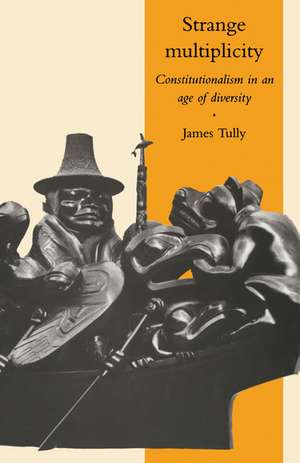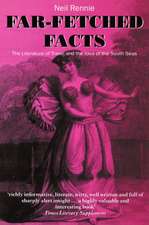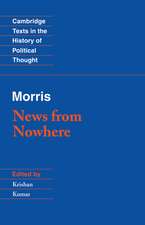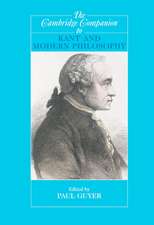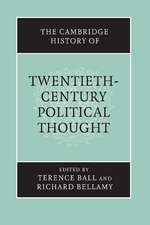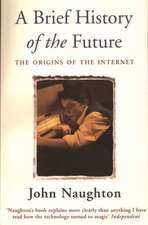Strange Multiplicity: Constitutionalism in an Age of Diversity: The Seeley Lectures, cartea 1
Autor James Tullyen Limba Engleză Paperback – 6 sep 1995
Preț: 158.94 lei
Nou
Puncte Express: 238
Preț estimativ în valută:
30.41€ • 31.75$ • 25.17£
30.41€ • 31.75$ • 25.17£
Carte disponibilă
Livrare economică 14-28 martie
Preluare comenzi: 021 569.72.76
Specificații
ISBN-13: 9780521476942
ISBN-10: 0521476941
Pagini: 272
Ilustrații: 1 b/w illus.
Dimensiuni: 139 x 214 x 17 mm
Greutate: 0.37 kg
Ediția:New.
Editura: Cambridge University Press
Colecția Cambridge University Press
Seria The Seeley Lectures
Locul publicării:Cambridge, United Kingdom
ISBN-10: 0521476941
Pagini: 272
Ilustrații: 1 b/w illus.
Dimensiuni: 139 x 214 x 17 mm
Greutate: 0.37 kg
Ediția:New.
Editura: Cambridge University Press
Colecția Cambridge University Press
Seria The Seeley Lectures
Locul publicării:Cambridge, United Kingdom
Cuprins
Part I. Demands for Constitutional Recognition: 1. The constitutional question raised by the politics of cultural recognition: six examples and three similarities; 2. The mutual recognition of cultural diversity: three features of the common ground and three historical movements; 3. The spirit of Haida Gwaii as a symbol of the age of cultural diversity; 4. A constitutional dialogue in The spirit of Haida Gwaii; Part II. Diversity and Contemporary Constitutionalism: 5. Anwering the constitutional question: an outline; 6. Two languages of contemporary constitutionalism and the three schools of modern constitutionalism; 7. The challenge of post-modernism and cultural feminism; 8. The challenge of interculturalism; Part III. The Historical Formation of Modern Constitutionalism: The Empire of Uniformity: 9. Constitutions ancient and modern; 10. Seven features of modern constitutionalism; 11. Example of forging the seven features: Locke and Aboriginal peoples; 12. Vattel, Kant and their followers; 13.The reform of diversity in Europe and the colonies; 14. The American revolution and the guardians of empire today; Part IV. The Historical Formation of Common Constitutionalism: The Rediscovery of Cultural Diversity, Part I: 15. The hidden constitutions of contemporary societies; 16. Understanding constitutionalism: Wittgenstein and Hale; 17. Examples of the three conventions: the Aboriginal and common-law system and the conventions of mutual recognition and consent; 18. The Aboriginal and common law system and the convention of continuity; 19.The Aboriginal and common law system and constitutional dialogue; Part V. The Historical Formation of Common Constitutionalism: The Rediscovery of Cultural Diversity. Part II: 20. Diverse federalism and the conventions of mutual recognition, continuity and consent; 21. Diverse federalism and continuity: the Québec act and the ancient constitution; 22. Diverse federalism, the three conventions and the American revolution; 23. The modern attack on diverse federalism: the Durham report and its followers; 24. Linguistic minorities and the three conventions: the form of reasoning appropriate to mutual recognition and accommodation; 25. Intercultural citizens, gender differences and the three conventions; Part VI. Constitutionalism in an Age of Cultural Diversity: 25. A summary of contemporary constitutionalism; 26. Replies to four objections to contemporary constitutionalism; 27. Two public goods of contemporary constitutionalism: belonging and critical freedom; Conclusion: the philosophy and practice of contemporary constitutionalism; Notes; Bibliography; Index.
Recenzii
"James Tully's questioning of 'our' received view of constitutionalism is long overdue, and the alternatives and corrections he suggests to simple, unified sovereignty notions are worth very serious consideration indeed, both by scholars and by politicians. Now that the fact of constitutional diversity within established states is no longer occluded, no longer can be, and the whole idea of the unitary 'nation-state' is coming under some question, such reconsiderations of the constitutional tradition we have inherited are most necessary. This is an important book, both in what it criticises and in what it proposes. It will stimulate, I am sure, a very useful discussion about a very pressing issue." Institute for Advanced Study, Princeton
Descriere
A profound survey of constitutionalism which develops a post-imperial philosophy to mediate conflicts in a multi-cultural age.
